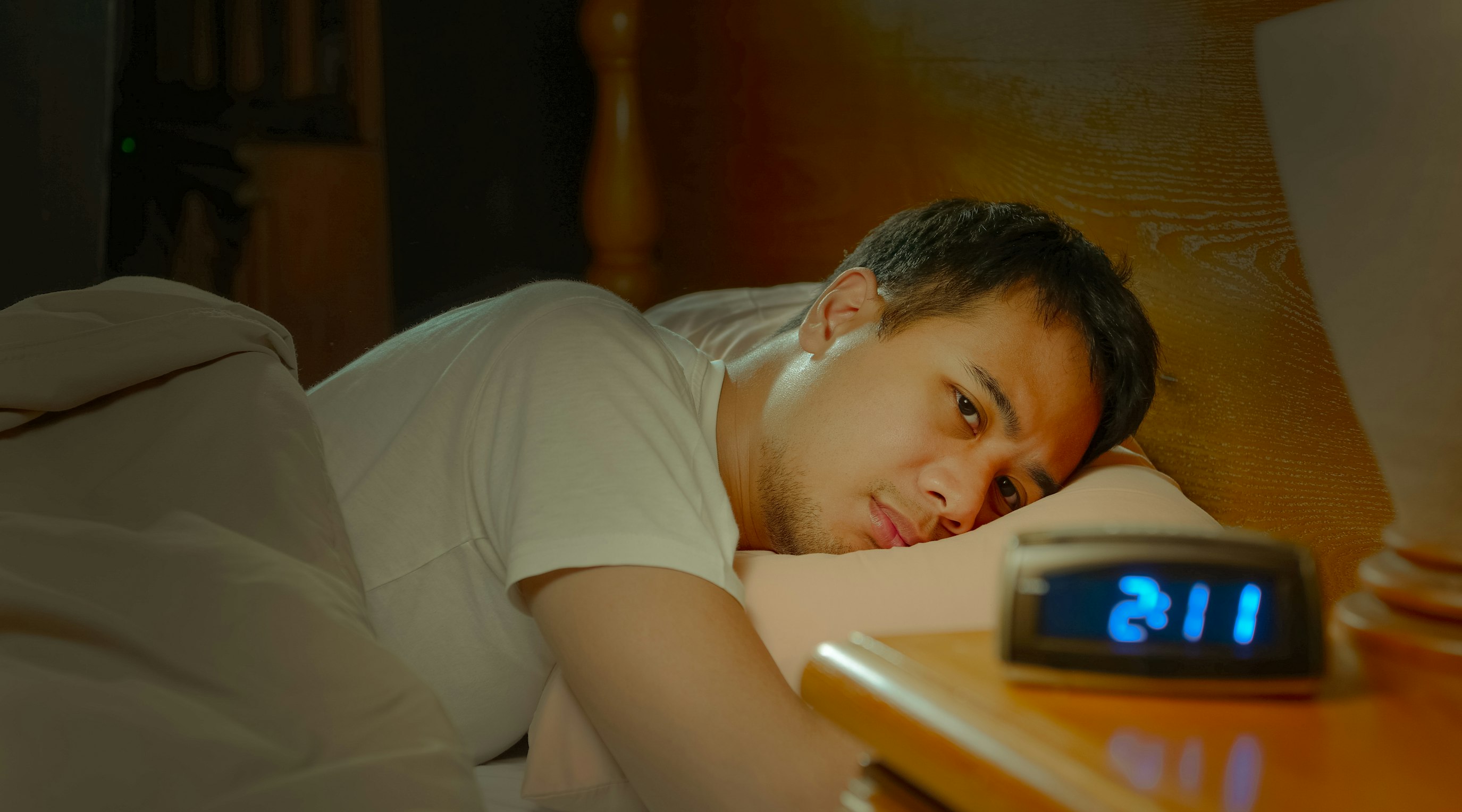Can CBD help improve sleep for people with autism?
8 min read
Kerry Charron
Contents
Patients with autism often experience sleep difficulties and even periods of insomnia. The symptoms associated with autism can greatly reduce the quality of life. Prescription drugs and over-the-counter sleep aids are typically prescribed and recommended, but many patients are looking for a more gentle and effective solution.
Many patients report that cannabidiol (CBD) is effective at promoting relaxation and sleep, and emerging research studies are starting to show data that backs up this anecdotal evidence. CBD is a naturally occurring compound found in cannabis plants, and it’s widely known for its calming effects. It has been shown to interact with the serotonin system, as well as the endocannabinoid system (ECS), both of which are responsible for regulating relaxation and sleep.
Here we look at the relationship between CBD and sleep, explore whether it can help improve sleep for individuals with autism, and provide information on how to introduce CBD as a supplemental therapy.
Exploring the connection between autism spectrum disorder and sleep issues
Autism is a developmental disability, and people with Autism Spectrum Disorder (ASD) tend to have problems with social communication and interaction. They may have repetitive behaviours or interests, may also demonstrate unusual patterns of learning, and have difficulty paying attention for extended periods.
Since many patients with ASD have difficulty unwinding after a busy and overstimulating day, they often have difficulty getting to sleep. Sensory overload, a challenge that many individuals with autism face, can make falling asleep feel almost impossible. On top of that, many people with autism sometimes also deal with other sleep issues like sleep apnea, restless leg syndrome, and waking up frequently during the night. These sleep disruptions can lead to an increase in anxiety, repetitive behaviours, and feelings of restlessness, making day to day life more challenging.
Lack of proper sleep can lead to a range of separate health issues, like depression, anxiety, heart issues, kidney disease, high blood pressure, diabetes, stroke, and obesity. And, in many cases, it's not just the patients who are affected. Their families also face significant challenges due to disrupted and inconsistent sleep caused by monitoring the patient's sleep activity.
Can CBD help improve sleep for individuals with autism?
While the data specifically relating to CBD’s effects on improving sleep in individuals with autism is currently limited, growing anecdotal evidence and scientific research suggests that the therapeutic effects of CBD may lead to increased relaxation and a good night's rest for people with autistic.
One study we can highlight is "Cannabidiol in Treatment of Autism Spectrum Disorder: A Case Study". Keep in mind that this study focuses on one patient, a nine-year-old boy who was diagnosed with non-verbal ASD. The objective of this case study was to demonstrate the efficacy of administering CBD in combination with low-dose THC for managing a range of the symptoms related to autism spectrum disorder, with a view to hopefully enhance the overall quality of life for individuals with ASD and their families. The patient was treated with a full-spectrum CBD oil that contained 20 mg of CBD and less than 1 mg of THC per dose.
The study found that
"Overall, the patient experienced a reduction in negative behaviours, including violent outbursts, self-injurious behaviours, and sleep disruptions. There was an improvement in social interactions, concentration, and emotional stability."
When looking more broadly at the impact CBD has on sleep, there is a larger body of research that we can look at.
"Cannabidiol in Anxiety and Sleep: A Large Case Series" The study included seventy-two adult participants who presented with both anxiety and sleep issues. The research aimed to investigate the impact of a specific intervention on sleep scores over time, in relation to a reduction in anxiety levels. The results revealed that within the first month, almost 80% of participants reported a marked decrease in anxiety, and sleep scores improved for over 65% of the participants. However, it is important to note that these sleep scores fluctuated over the course of the study, suggesting the need for further investigation.
Another paper we can look at is "Cannabis, Cannabinoids, and Sleep: a Review of the Literature", which aimed to summarise the state of research on cannabis and sleep up to 2014. Studies have indicated that medium to high doses of CBD may contribute to a higher percentage of total sleep. This is further supported by a human pilot study that demonstrated improved sleep quality with high-dose CBD. However, it should be noted that the combination of CBD and THC was shown potentially reduce slow wave sleep.
And this is the case with many studies into the therapeutic effects of CBD on sleep. While there is an abundance of incidental evidence that proposes the potential for a beneficial impact on sleep, there is simply not enough data to come to any definitive conclusions.
Thankfully, with the social and political climate surrounding medical cannabis on a global scale becoming ever more accepting, we can expect to see an increase in research and understanding into the therapeutic effects of this plant-based medicine. For now, the anecdotal evidence is worth considering, and so it may be worth exploring CBD as a supplemental therapy for sleep problems.
CBD safety and dosage considerations
CBD has a high safety profile and comes with no risk of dependence or addiction. The side effects related to its administration are relatively mild and without the risks associated with the use of certain sleep assisting pharmaceuticals. Even so, it should still be taken with caution and under the guidance and supervision of a doctor.
In terms of dose sizing, there are a few factors that should be taken into consideration, such as body weight, metabolic rate, cannabinoid tolerance level, and severity of the condition or the symptoms that are to be treated. It is also important to remember that CBD works differently for everyone.
The severity of side effects can vary significantly from person to person, but the vast majority of patients that take CBD for medical reasons report no or minimal adverse effects. Some of the more commonly reported side effects include:
- fatigue
- dry mouth, dizziness
- diarrhoea
- changes in appetite or weight.
It is essential to note that CBD can interact with certain medications, which only further highlights the importance of consulting your doctor before taking any CBD-based supplement.
While CBD products are widely available in the UK, it’s essential to choose a reputable manufacturer that is transparent about its labelling and has third-party testing certificates for all of its products. Medically prescribed CBD options are subject to far stricter controls in terms of quality and dosage accuracy than those available over the counter.
Lifestyle and environmental changes to help improve sleep
Even when you correctly dose and take CBD, there are some lifestyle changes that you may need to make in order to optimise your sleep.
It’s important to maintain a regular sleeping schedule and strive for seven hours of uninterrupted sleep every night. You will want to make sure that your bedroom environment is conducive to sleep by avoiding exposing yourself to bright screens or lights in the hour or so before bed, keeping the temperature comfortable and on the cool end of the spectrum, and keeping the area dark and quiet.
In addition to making these environmental changes, it’s a good idea to pay attention to your diet, exercise regularly, and try to find healthy and effective ways to manage stress (which CBD may be able to help with). All of these factors can have a profound impact on your sleep quality and overall wellbeing when done in moderation.
Conclusion
There we have it, a quick but comprehensive rundown of the therapeutic potential of CBD for sleep and how to use it safely.
While more research is still needed, we can confidently say that CBD has a good safety profile, may be useful in addressing certain sleep issues in combination with lifestyle changes, and has a bunch of patient based anecdotal evidence to back it up.
Releaf understands that finding a doctor who is registered to prescribe medical cannabis can be difficult. That's why we offer online consultations with our specialist doctors, as well as a unique medical cannabis card for extra protection and access to the treatment you require. If you're interested in learning more about our services for yourself or a loved one, get in touch and one of our team members will be happy to help.
Share article
Did you like this article?
It is important to seek medical advice before starting any new treatments. The patient advisors at Releaf are available to provide expert advice and support. Alternatively, click here to book a consultation with one of our specialist doctors.
Elevate your wellness with medical cannabis
Get comprehensive care, convenience, and confidence with an all-in-one treatment plan.
Am I eligible?Authors
Kerry, with experience as a medicinal cannabis cultivation technician and expertise in business licensing applications, is passionate about developing educational content and advocating for better access to medical cannabis worldwide.
Editorial Policy
All of our articles are written by medical cannabis experts, guided by strict sourcing guidelines, and reference peer-reviewed studies and credible academic research. Our expert clinical team and compliance specialists provide valuable insights to ensure accuracy when required. Learn more in our editorial policy.
Need more help?






